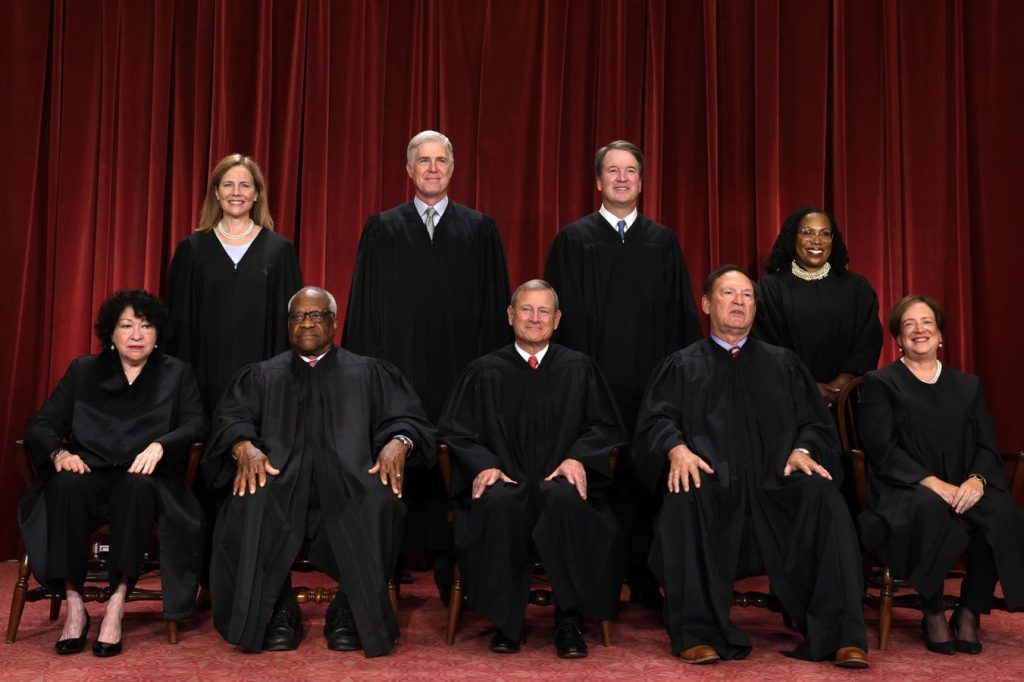The U.S. Supreme Court’s decision in Texas Top Cop Shop marks a significant procedural victory for the government in its bid to enforce the Beneficial Ownership Information (BOI) reporting requirements of the Corporate Transparency Act (CTA). By granting the government’s application to stay the nationwide preliminary injunction, the Court effectively revived the CTA’s reporting mandates, which had been temporarily suspended. Crucially, this decision does not address the constitutional validity of the CTA itself, leaving that substantive question to be resolved through the ordinary course of appeals. Instead, the Court’s intervention focuses on the procedural propriety of issuing nationwide injunctions against acts of Congress. The stay lifts the injunction pending the Fifth Circuit’s review and potential Supreme Court consideration, signaling the Court’s growing discomfort with the broad use of such injunctions.
The Court’s succinct order provides little insight into the Justices’ reasoning, merely stating the stay and its conditions. However, concurring and dissenting opinions offer glimpses into the underlying debate. Justice Gorsuch, while agreeing with the stay, expresses his desire for the Court to definitively address the issue of universal injunctions. Justice Jackson’s dissent argues against the emergency relief granted, citing the expedited Fifth Circuit proceedings and the government’s initial deferred implementation of the CTA as reasons to allow the lower courts to proceed without Supreme Court intervention. This divergence of opinion highlights the complex legal questions surrounding the appropriate scope of judicial authority in challenging federal laws.
The central issue revolves around two distinct but interconnected legal battles. First, the core substantive question persists: Does the CTA constitute a valid exercise of Congress’s power under the Commerce Clause? The Supreme Court has effectively tabled this constitutional debate, deferring to the lower courts to grapple with the intricate legal arguments surrounding the CTA’s reach and impact. This deferral suggests a preference for a more thorough and developed record before weighing in on such a significant constitutional matter. Second, and more immediately relevant to this decision, is the procedural question of whether a district court can issue a nationwide injunction to halt the enforcement of a federal law.
The Supreme Court’s decision in Texas Top Cop Shop builds upon its prior struggle with this issue in Labrador v. Poe. The Court’s actions here suggest a growing skepticism towards nationwide injunctions, viewing them as potentially disruptive and exceeding the traditional scope of judicial review. By staying the injunction, the Court has signaled its disapproval of such broad remedies, effectively limiting the ability of district courts to unilaterally halt the implementation of federal statutes. This reinforces the principle that acts of Congress should generally be allowed to take effect while undergoing judicial scrutiny, unless there is a demonstrably compelling reason to prevent their enforcement.
The practical effect of the stay is to reinstate the CTA’s reporting requirements, requiring companies to submit BOI reports to FinCEN. This creates an immediate challenge for businesses that, relying on the previous injunction, may not have prepared the necessary information for compliance. While the exact timelines remain unclear, it is anticipated that FinCEN will soon issue revised guidance regarding reporting deadlines. The expected delay, ranging from several weeks to potentially two months, will likely provide some breathing room for businesses to gather the required information and comply with the reinstated reporting obligations.
Further complicating matters is the potential for executive action by the Trump Administration. While Congress passed the CTA with veto-proof majorities, the actual implementation and enforcement of the reporting requirements fall under the purview of the Treasury Department. Therefore, the administration could, theoretically, delay or modify the reporting process. This introduces a layer of uncertainty, as the Trump Administration’s stance on BOI reporting remains unclear. Conflicting signals, from previous support for the CTA to the current administration’s general aversion to government regulation, make predicting their course of action difficult. This uncertainty adds yet another layer of complexity for businesses trying to navigate the ever-evolving landscape of the CTA’s implementation. For now, unless the Trump Administration intervenes, companies must prepare to comply with the reinstated reporting requirements.

